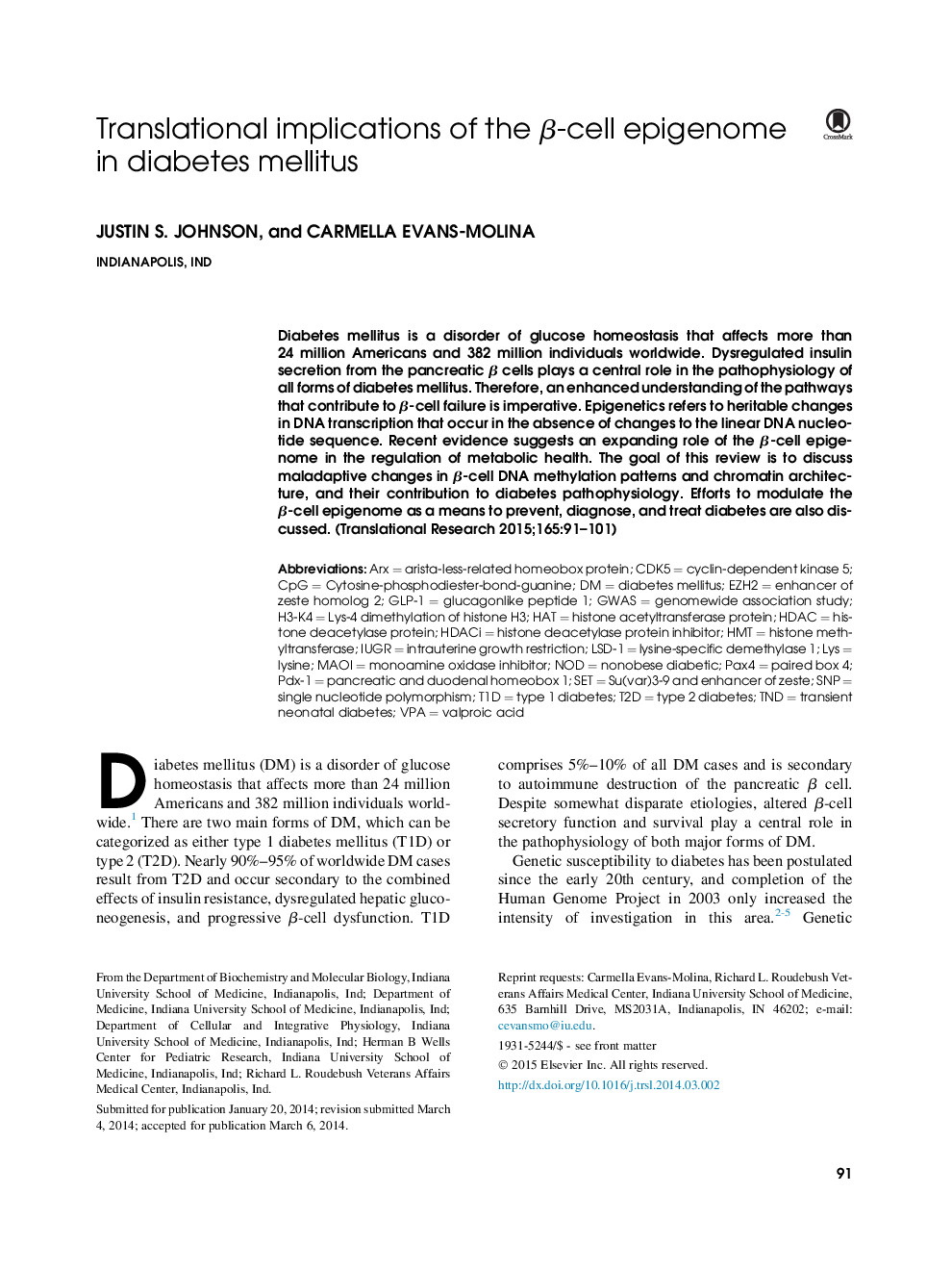| Article ID | Journal | Published Year | Pages | File Type |
|---|---|---|---|---|
| 6156128 | Translational Research | 2015 | 11 Pages |
Diabetes mellitus is a disorder of glucose homeostasis that affects more than 24 million Americans and 382 million individuals worldwide. Dysregulated insulin secretion from the pancreatic β cells plays a central role in the pathophysiology of all forms of diabetes mellitus. Therefore, an enhanced understanding of the pathways that contribute to β-cell failure is imperative. Epigenetics refers to heritable changes in DNA transcription that occur in the absence of changes to the linear DNA nucleotide sequence. Recent evidence suggests an expanding role of the β-cell epigenome in the regulation of metabolic health. The goal of this review is to discuss maladaptive changes in β-cell DNA methylation patterns and chromatin architecture, and their contribution to diabetes pathophysiology. Efforts to modulate the β-cell epigenome as a means to prevent, diagnose, and treat diabetes are also discussed.
